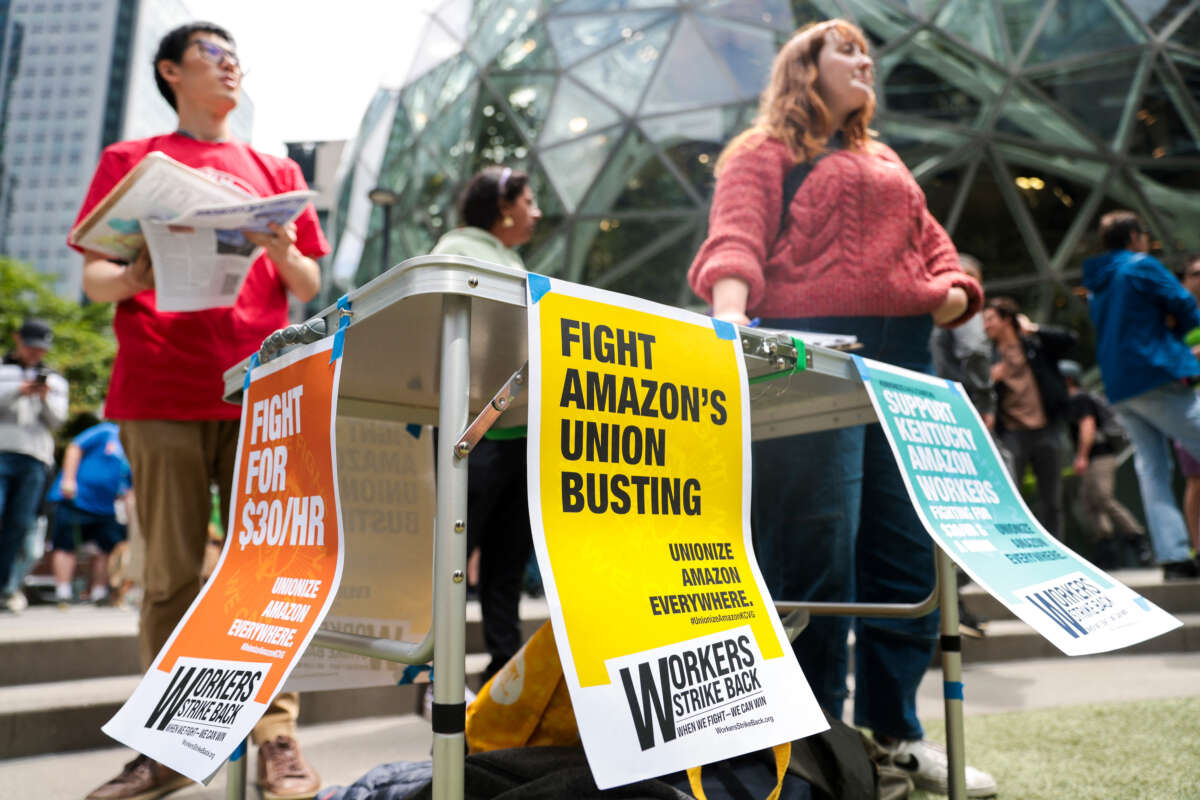Labor officials issued a much-anticipated decision on Friday that could make it far easier for workers to unionize in the face of employers who break labor laws in union elections.
The National Labor Relations Board (NLRB) issued a new standard in Cemex Construction Materials Pacific, LLC that would force an employer to recognize and bargain with a union if a majority of workers had previously requested a union and the company had broken labor laws that would require setting aside the results of a subsequent election.
The decision represents a compromise version of the Joy Silk doctrine that’s been championed by the labor movement. Joy Silk specifies that, if a majority of workers have indicated their support for the union, employers are forced to recognize the union unless they have “good faith doubt” about the support. Cemex differs in that, if the union has majority support, an employer can still request a union election with a form known as an RM petition and is not required to recognize the union at that point.
Though the labor board’s new standard is not a full restoration of the Joy Silk doctrine, it is still a win for union organizers.
“Today’s decision … will strengthen the Board’s ability to provide workers across the country with a timely and fair process for seeking union representation,” NLRB Chairman Lauren McFerran said in a statement. “The Cemex decision reaffirms that elections are not the only appropriate path for seeking union representation, while also ensuring that, when elections take place, they occur in a fair election environment.”
“Under Cemex, an employer is free to use the Board’s election procedure, but is never free to abuse it — it’s as simple as that,” McFerran continued.
In a press release, the NLRB public affairs office explained that the new standard will disincentivize employers from committing unfair labor practices in the run up to an election, helping to level the playing field between employers and union organizers.
The scenario presented in the new standard appears to have similarities to recent unionization drives.
In the Amazon warehouse union drive in Bessemer, Alabama, for instance, a majority of workers had signed union cards in the run up to their election, but the company launched a fierce anti-union campaign that ultimately got the results of the election thrown out in 2021. This triggered a second election, in which the union says the company cheated again, with results still pending arbitration over hundreds of challenged ballots.
It’s unclear if Cemex could have been applicable in this instance. But it is illustrative of how often companies engage in enough illegal activity to have elections thrown out, even in the most prominent and closely-watched cases.
Media that fights fascism
Truthout is funded almost entirely by readers — that’s why we can speak truth to power and cut against the mainstream narrative. But independent journalists at Truthout face mounting political repression under Trump.
We rely on your support to survive McCarthyist censorship. Please make a tax-deductible one-time or monthly donation.
